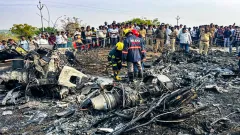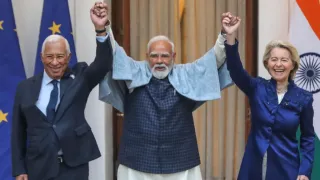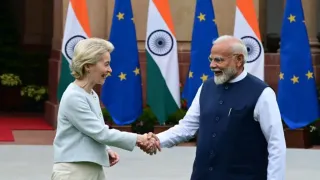The much-anticipated peace talks between Pakistan and the Afghan Taliban in Istanbul have collapsed dramatically, dealing a major blow to regional stability. What began as a cautious step toward reconciliation has spiraled into a diplomatic crisis, exposing deep mistrust between Islamabad and Kabul. Mediators from Turkey and Qatar were left stunned as the discussions descended into chaos over the contentious issue of US drone operations and cross-border terror.
The talks, meant to reset strained ties after months of border clashes and political hostility, ended in acrimony after the Pakistani delegation confirmed a covert agreement with the United States permitting drone operations from its territory. This admission enraged the Afghan side, which demanded immediate assurances that Pakistan would not allow American drones to violate Afghan airspace — a demand that was flatly rejected minutes later following what sources described as a “mysterious phone call” to Islamabad.
A Fragile Dialogue Unravels
According to diplomatic sources, the Istanbul meeting began on a promising note, with both sides expressing cautious optimism. However, the situation deteriorated quickly when Pakistan’s representatives reversed their earlier position on limiting drone operations. The reversal, reportedly made under pressure from senior Pakistani officials, derailed the discussions entirely.
Witnesses described the atmosphere as tense and chaotic. Members of the Afghan delegation accused the Pakistani team of “bad faith diplomacy,” while Turkish and Qatari mediators struggled to restore order. The breakdown, one observer noted, seemed “engineered rather than accidental,” suggesting deeper political motives behind the Pakistani side’s conduct.
Mediators Stunned by Pakistan’s Behavior
Diplomatic observers from Turkey and Qatar expressed shock at the Pakistani delegation’s conduct, calling it “unprecedented in modern negotiations.” Sources said Major General Shahab Aslam, the head of Pakistan’s Special Operations Division, repeatedly interrupted Afghan representatives and dismissed their security concerns over US drone strikes. At one point, the Afghan team threatened to walk out after being accused of harboring Pakistani militants.
Aslam reportedly demanded that the Taliban “rein in all anti-Pakistan groups,” including the Tehrik-i-Taliban Pakistan (TTP). The Afghan side countered that the TTP consists of Pakistani nationals and that Kabul has no authority to control Pakistan’s internal groups. The exchange led to shouting matches and the eventual collapse of the session, with mediators describing the behavior as “an embarrassment to diplomacy.”
Clashing Security Demands and U.S. Drone Tensions
The drone dispute became the breaking point. Afghan negotiators insisted that Pakistan formally prohibit US drone flights over Afghan territory, arguing that repeated incursions undermine their sovereignty. Pakistani officials initially seemed open to discussing safeguards but later declared the issue “non-negotiable.”
Qatari diplomats tried to mediate, but tensions escalated further when Major General Aslam pointedly asked why Qatar allows American drones to operate from its own bases. When reminded that Qatar has a formal agreement with the US, Aslam responded, “So do we,” effectively confirming Pakistan’s collaboration with Washington. This revelation triggered outrage from the Afghan side and signaled the final breakdown of the meeting.
Fallout and Diplomatic Repercussions
The failed talks have left Pakistan-Afghanistan relations at their lowest point in years. Afghan officials warned that any future Pakistani strikes inside their territory would be met with “reciprocal action.” Islamabad, meanwhile, accused Kabul of failing to control insurgent attacks across the border. Analysts now fear a resurgence of cross-border skirmishes and proxy confrontations in the coming weeks.
The breakdown also exposed divisions within Pakistan’s leadership. Civilian officials reportedly pushed for continued engagement, but the military establishment, led by the ISI, maintained a harder stance, citing national security concerns. This internal disunity, observers say, crippled Islamabad’s ability to negotiate effectively and contributed to the collapse.
A Regional Setback for Peace
The Istanbul fiasco is being viewed as a major setback for regional diplomacy. With mediators frustrated and both sides retreating into entrenched positions, hopes for restarting the dialogue appear dim. The collapse underscores the deep-rooted distrust between Islamabad and Kabul — and the growing complexity of balancing ties with Washington amid the shadow of drone warfare.
For now, the peace process lies in ruins. The Istanbul talks were meant to usher in a new era of cooperation; instead, they have reignited old hostilities. As regional powers watch closely, the failure highlights how fragile peace remains in South Asia — and how quickly it can unravel under the weight of conflicting interests and mistrust.
Also Read: Israel Strikes Gaza After Netanyahu’s ‘Powerful’ Order























